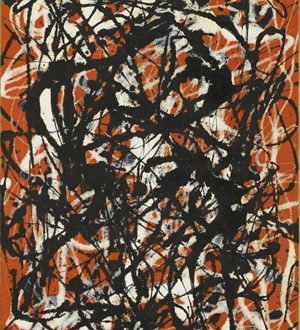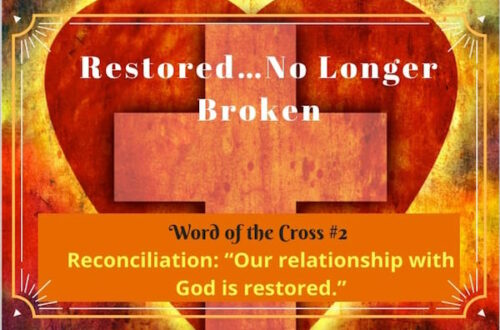“The New Mantra of Revenge: Unfriend”
Also posted on the web: “Dealing with a Mean Mother: Is an Obituary the Best Revenge?” “Revenge of the Gossip Girls” “Oscar Wilde once said: The greatest cruelty we can do unto others is not to hate them but to ignore them. That’s my form of revenge.” What's yours? For me…
…it's the silent treatment. I’m fairly sanguine, don't think of myself as a Make-em-Pay kind of person. But when I’ve been wounded, if I respond out of weakness, rather than God’s strength, that’s my temptation—retreat and pull up the drawbridge.
On the one hand the desire to punish and take revenge “…far from being merely a fallen human emotion…is a reflection of the purest longing for justice” according to Dan Allender and Tremper Longman in their book Bold Love.
But on the other hand, we are commanded, in both the Old and New Testament not to do it. “Do not seek revenge or bear a grudge against one of your people, but love your neighbor as yourself. I am the LORD (Leviticus 19:18). “Do not take revenge, my friends, but leave room for God's wrath, for it is written: ‘It is mine to avenge; I will repay,’ says the Lord” (Romans 12:19).
And Alexander Dumas’ masterpiece, The Count of Monte Christo, powerfully shows us why. Not the 2002 movie with Jim Caviezel. But the much more spiritually and psychologically robust story as Dumas wrote it.
The main character, Edmund Dantes, is betrayed by a neighbor and two friends, all jealous of Dantes’ life—his courage, his popularity, his earned success, and especially his beautiful fiancé. His friends tell the French authorities that Dantes is a traitor actively cooperating with Napoleon when in fact Dantes was nothing more than an innocent pawn. Despite the betrayal things seemed to be working out for Dantes and it appears that the Magistrate Villefort is going to release him until Villefort asks the name of Napoleon’s agent who was supposed to have contacted Dantes. Unknown to Dantes, the name he reveals is none other than Villefort’s father. So to protect his family, his power and position, Villefort sends Dantes off to prison without a trial expecting him to disappear forever.
Thirteen years in a dungeon. Edmund Dantes suffered the isolation, the humiliation, the injustice until he was finally able to escape. He discovers that his father has died of hunger, that his fiancé has married one of the so-called friends who betrayed him, and that the magistrate and his friends enjoy great rank and privilege in French society. But a map, the gift of a dying friend in prison, an old priest, leads Dantes to a fabulous fortune of buried treasure—the means to his long-desired revenge.
“I, who have also been betrayed, assassinated and cast into a tomb, I have emerged from that tomb by the grace of God and I owe it to God to take my revenge. He has sent me for that purpose. Here I am.”
For years he studies his enemies’ lives and plots their demise. When he is done (spoiler alert!) one is murdered by a thief. All are publicly dishonored. One blows his brains out, one goes mad and one is allowed to live on the run.
But the collateral damage is high. The one friend he wants to honor almost loses his fiancé. An innocent child dies. His former fiancé is left a lonely widow.
Dantes is wracked with guilt. To his friend he confides, “Tell the angel who will watch over your life to pray now and then for a man who, like Satan, believed himself for an instant to be equal to God, but who realized in all humility that supreme power and wisdom are in the hands of God alone.”
Dantes realizes that in the complexity of life and his own finiteness he can never know or control enough to dispense perfect justice. And that “God is merciful to all…he is first a father, then a judge.” In an act of repentance he leaves his fortune to his friend and his fiancé and sails away with a new love. “Live and be happy, beloved children of my heart,” he writes in his farewell note, “and never forget that, until the day comes when God will deign to reveal the future of man, all human wisdom is contained in these words: Wait and hope!"
That is God's message to us. He hates injustice far more than we do. He has an incredibly long memory and an excellent record of righting wrongs. He knows how to do it without injuring the innocent or indulgin our wounded vanity.
Let's face it, the silent treatment and all our other poor attempts at revenge and control are pretty pitiful. Far better to let love "cover a multitude of sins" or put our offenders in hishands and wait and hope for God’s mercy, God’s justice.
PS. As much I like Jim Caviezel and the production values of the 2002 movie, Dumas' bok is far better. In the movie Dantes exacts his revenge, but there is little collateral damage. He is somewhat sorry for his vengeful behavior in the end, but there is no spiritual reckoning. And he heads into a future with his former fiancé, their son (???) and all his treasure. Still it makes an engaging juxtaposition with the original.


